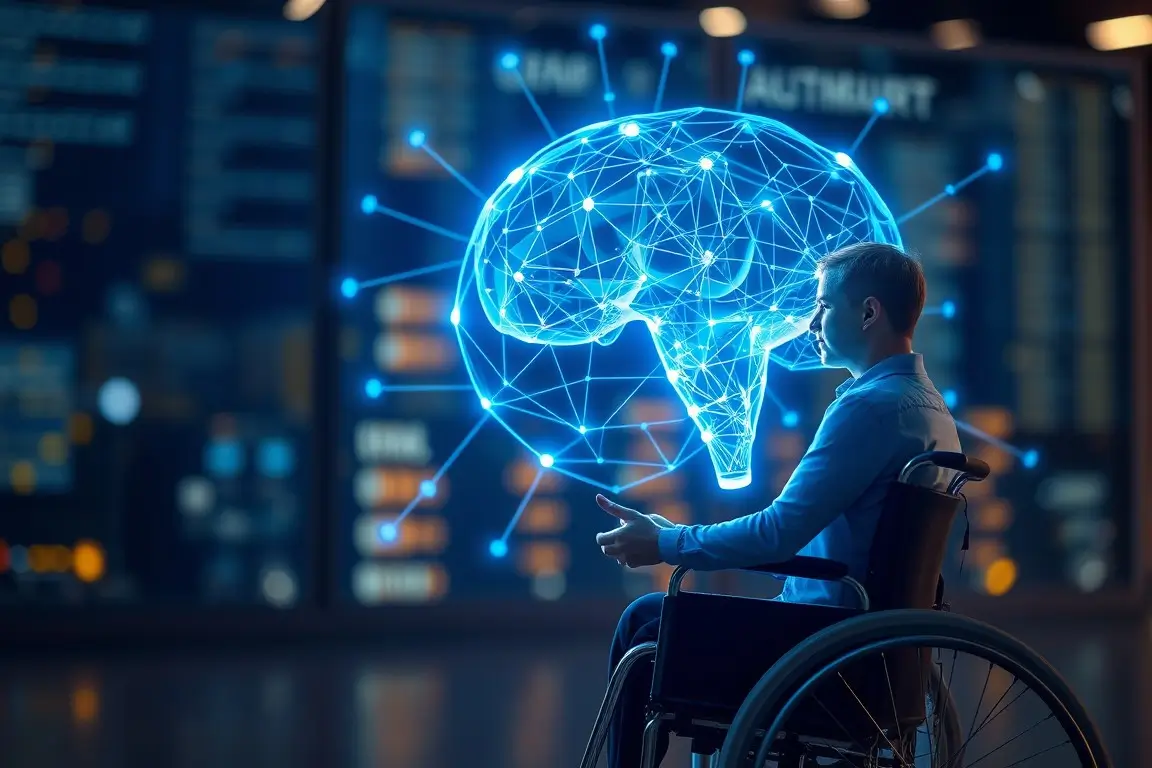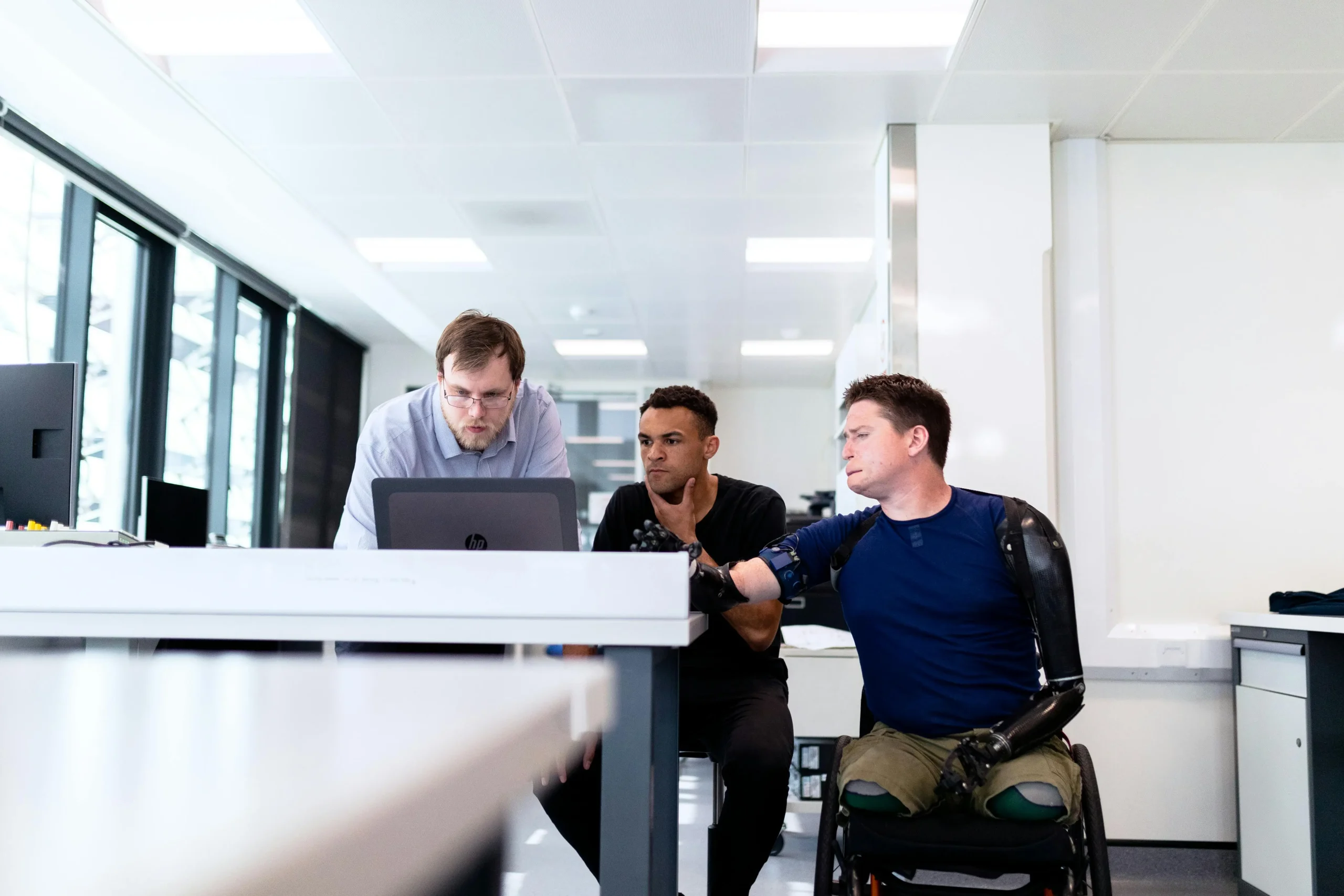In recent years, AI has revolutionized various industries, offering innovative solutions to age-old problems. For disabled individuals, Artificial Intelligence presents a wealth of opportunities to enhance job search experiences, improve accessibility, and ultimately secure fulfilling employment. This blog explores how Artificial Intelligence is transforming job hunting for disabled persons, offering practical tips and insights to leverage these technologies for better career outcomes.
1. Personalized Job Matching
Artificial Intelligence driven job matching platforms use sophisticated algorithms to analyze job seekers’ skills, experiences, and preferences. For disabled individuals, these platforms offer tailored job recommendations based on their unique abilities and requirements.
How It Works:
- Skill Assessment: Artificial Intelligence tools assess the skills and qualifications of job seekers and match them with relevant job openings. For disabled individuals, this ensures that job recommendations align with their specific abilities and needs.
- Preference Matching: Artificial Intelligence systems take into account preferences such as remote work options, flexible hours, or specific workplace accommodations. This helps disabled job seekers find roles that fit their lifestyle and requirements.
Example: Platforms like Recruitee and Jobcase use Artificial Intelligence to provide job recommendations tailored to users’ profiles, including accessibility needs.
2. Enhancing Accessibility with AI Tools
Artificial Intelligence powered tools can significantly improve accessibility for disabled individuals, making it easier to navigate job search platforms and apply for positions.
Key Tools:
- Screen Readers: Artificial Intelligence enhanced screen readers, such as JAWS, help visually impaired individuals access job listings and application forms by converting text into speech.
- Voice Recognition: Artificial Intelligence driven voice recognition tools, like Dragon NaturallySpeaking, enable users with mobility impairments to control their computers and input data using voice commands.
Example: Google’s Accessibility Features offer a range of tools designed to make online job searching more accessible for users with various disabilities.
3. Improving Resume and Cover Letter Creation With AI
Crafting a compelling resume and cover letter is crucial for job seekers, but it can be challenging for individuals with disabilities. Artificial Intelligence tools can assist in creating professional and tailored application materials.
How AI Helps:
- Resume Builders: Artificial Intelligence powered resume builders, such as Resumake and Zety, offer templates and suggestions to help users create effective resumes that highlight their skills and experiences.
- Cover Letter Generators: Artificial Intelligence tools can generate personalized cover letters by analyzing job descriptions and matching them with the user’s skills and qualifications.
Example: Enhancv provides Artificial Intelligence driven resume and cover letter templates that guide users through the creation process, ensuring that all important information is included.
4. Facilitating Job Interviews with AI
Artificial Intelligence technologies can assist in preparing for job interviews and even conducting interviews, providing valuable support for disabled individuals.
Interview Preparation:
- Mock Interviews: Artificial Intelligence platforms offer mock interview simulations, such as Interviewing.io and Pramp, to help job seekers practice their responses and gain confidence.
- Artificial Intelligence Coaching: Artificial Intelligence driven coaching tools provide feedback on interview performance, helping users improve their answers and presentation.
Example: HireVue uses Artificial Intelligence to analyze video interviews, providing feedback on verbal and non-verbal communication skills, which can be especially useful for preparing for real interviews.
5. Automating Job Application Processes
The job application process can be time-consuming and complex. Artificial Intelligence technologies streamline this process, making it more efficient for disabled individuals.
AI Automation Tools:
- Application Tracking: Artificial Intelligence systems track and manage job applications, ensuring that users don’t miss deadlines or important follow-ups.
- Automated Responses: Artificial Intelligence tools can generate personalized responses to job applications, saving time and reducing the stress associated with managing multiple applications.
Example: Jobscan uses Artificial Intelligence to help users optimize their resumes and cover letters for Applicant Tracking Systems (ATS), increasing the chances of getting noticed by employers.
6. Enhancing Employer-Employee Communication
AI can facilitate better communication between employers and disabled employees, ensuring that both parties understand each other’s needs and expectations.
Communication Tools:
- Real-Time Translation: AI-powered translation tools, such as Google Translate, help break down language barriers and improve communication in diverse workplaces.
- Accessibility Support: Artificial Intelligence can assist in creating accessible communication formats, such as captioning and sign language translation.
Example: Microsoft Translator offers real-time translation and captioning services that can enhance communication for employees with hearing impairments.
7. Providing Ongoing Support and Development
Artificial Intelligence not only aids in job search but also provides ongoing support for professional development and career growth.
Support Tools:
- Learning Platforms: Artificial Intelligence-driven learning platforms, such as Coursera and edX, offer personalized learning paths and courses to help users acquire new skills and advance their careers.
- Career Counseling: AI-powered career counseling tools provide insights and advice on career development, helping users set and achieve their professional goals.
Example: LinkedIn Learning offers AI-curated courses and learning paths tailored to users’ career interests and goals.
Related Resources
For more insights on leveraging AI in job searches and career development, explore these related articles:
- The Future of Inclusive Remote Work for People with Disabilities
- How to Build Confidence as a Disabled Job Seeker
- 5 Effective Networking Tips for Disabled Job Seekers
- Unlock Your Potential: Confidence Building Tips for Disabled Job Seekers
- Top Accessibility Tools for Remote Disabled Workers
These resources provide additional strategies and tools to enhance your job search and career development with AI.













